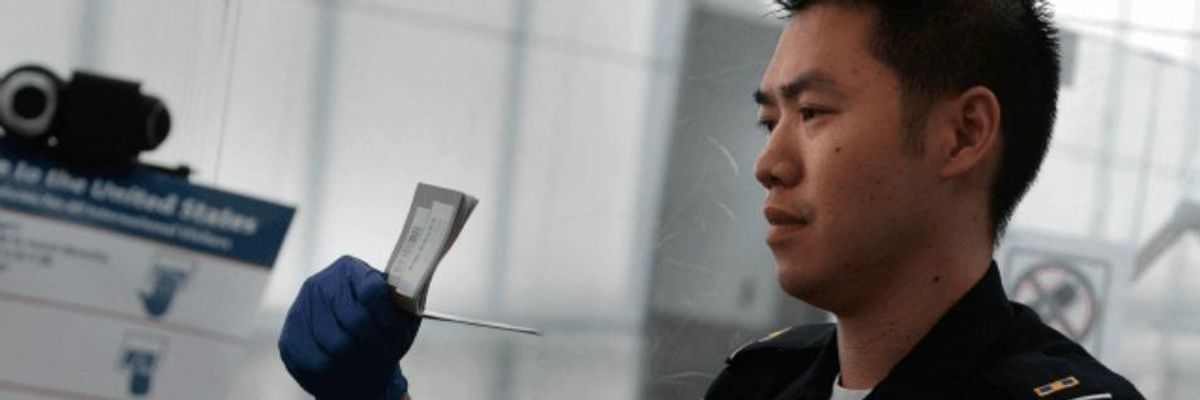File this under Another Unsettling Development: People who want to travel to the United States may soon have their Facebook profiles and other social media accounts "vetted" by the Department of Homeland Security (DHS) before entering.
A proposed change to the Electronic System for Travel Authorization (ESTA) and to Form I-94W posted to the government's Federal Register last week suggests adding the following question: "Please enter information associated with your online presence--Provider/Platform--Social media identifier."
These forms are filled out by all international travelers who wish to travel to the U.S. under the Visa Waiver Program.
The report states that this would be an "optional data field to request social media identifiers to be used for vetting purposes, as well as applicant contact information."
"Collecting social media data will enhance the existing investigative process and provide DHS greater clarity and visibility to possible nefarious activity and connections by providing an additional tool set which analysts and investigators may use to better analyze and investigate the case," the department further notes.
As Fusion reporter Kashmir Hill wrote, this overly broad request raises many questions for travelers.
"As phrased that could include your Twitter handle, the url for your Facebook page, your OkCupid or Grindr handle, your Instagram account, your Tumblr, your Vine account, your Snapchat, your Reddit account, your Pinterest page, your PornHub account, and any random messaging forums in which you take part," Hill said. "Where does it end? Must you include an account if it's private?"
Joseph Lorenzo Hall, chief technologist with The Center for Democracy & Technology, who first drew attention to the change, told the BBC that he hopes that U.S. government "rethinks" the proposal.
"Democracy in general requires having spaces free from government scrutiny and increasingly social life happens online," Hall said. "We would have a poor society if people were chilled from participating in social activity online so I really hope they rethink this."
For what it's worth, the government is accepting comment on this proposal for the next 59 days.

